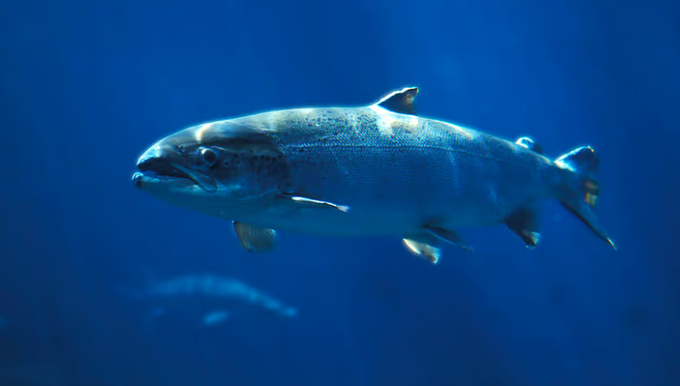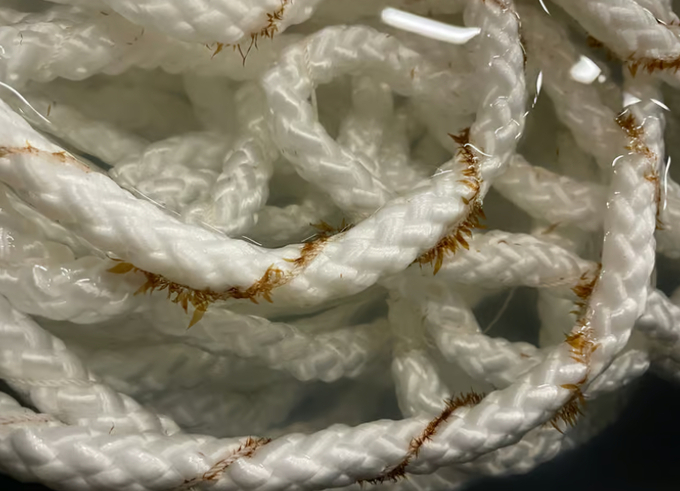November 27, 2025 | 04:48 GMT +7
November 27, 2025 | 04:48 GMT +7
Hotline: 0913.378.918
November 27, 2025 | 04:48 GMT +7
Hotline: 0913.378.918
A new farm is exploring a solution to that problem, by raising salmon and kelp in adjacent pens.

Waste produced by the salmon will provide nutrients to the kelp – which will in turn be used in salmon feed.
The experimental aquaculture operation is located in the municipality of Steigen, in Norway's Norland county. Norwegian fish farming companies Folla Alger and Cermaq are collaborating on the salmon aspect of the project, while the SINTEF Ocean research group is responsible for the kelp.
The farm consists of 24 net pens, anchored in the ocean near the shore. These pens are joined together in groups of four, and those six groups are in turn connected to one another in a line, forming a rectangle when viewed from above. The two groups at either end of the rectangle contain salmon, while the four in the middle contain kelp.

The kelp will be grown on ropes suspended in the pens.
The idea is that the soluble contents of the feces and uneaten food from the salmon pens will be largely taken up by the kelp, providing nutrients that may boost the seaweed's growth by up to 50%. This could be particularly important at times of the year when naturally occurring nutrient levels in the seawater are lower than average.
It is hoped that the salmon will also benefit from the arrangement. The health of the fish, and of their environment, will be monitored to see how and if this may be the case.
We're told that the harvested kelp will initially be used as a nutritional additive in livestock feed for land animals such as cows and pigs, although ingredients extracted from it should ultimately also find use in salmon feed.
Plans call for 1,500 tons (1,361 tonnes) of salmon and 100 tons (91 tonnes) of kelp to be produced in the first year of operation, with those numbers doubling for the second year. The project is scheduled to run for six years.
(SINTEF, Folla Alger)

(VAN) A new study reveals how the simultaneous effects of ocean acidification, salinity and loss of oxygen are making the world more fragile.

(VAN) Hopes are growing that the creation of the first 3D turkey gut model could be a turning point in the battle against the virulent blackhead disease.

(VAN) Tyson, America’s biggest meat supplier, plans to shutter one of its largest beef processing plants as the industry continues to struggle with low cattle supplies and political pressure from Washington.

(VAN) New FAO study shows how digital solutions are empowering farmers and fishers to prevent losses and build resilient agrifood systems.

(VAN) Brazil's COP30 presidency pushed through a compromise climate deal on Saturday that would boost finance for poor nations coping with global warming but that omitted any mention of the fossil fuels driving it.

(VAN) Poultry farmers in the UK have been warned that they could face one of the worst winters yet for bird flu.

(VAN) Prices of main-crop paddy have risen sharply, with jasmine rice hitting 16,100 baht per tonne — the highest level in years.